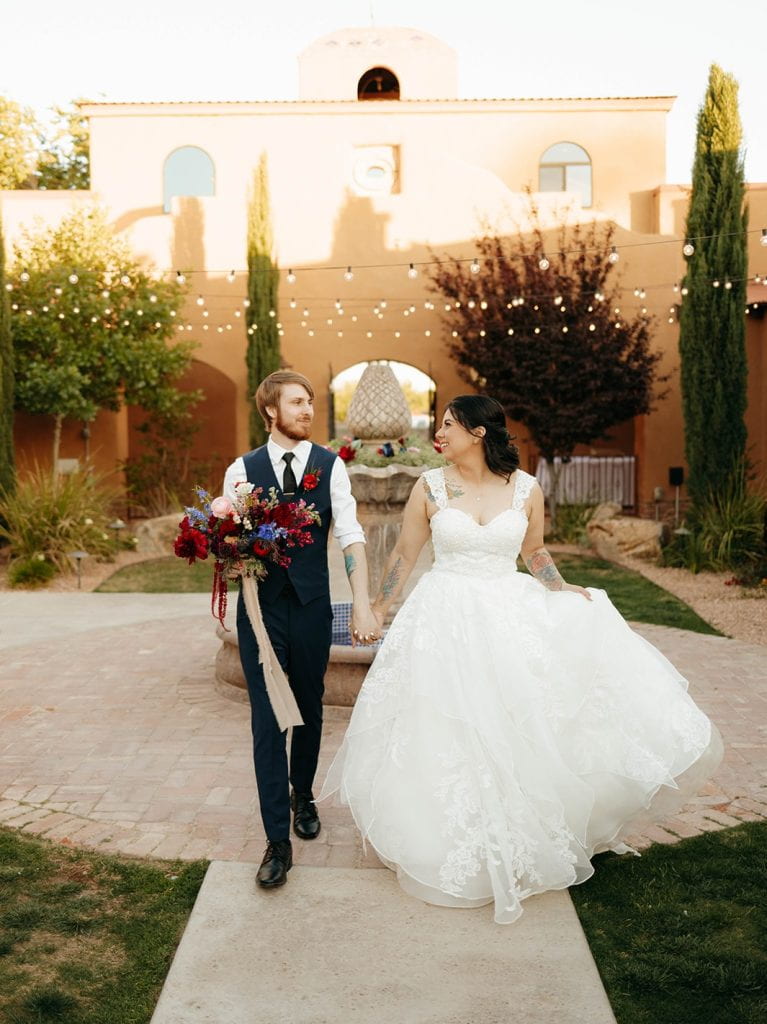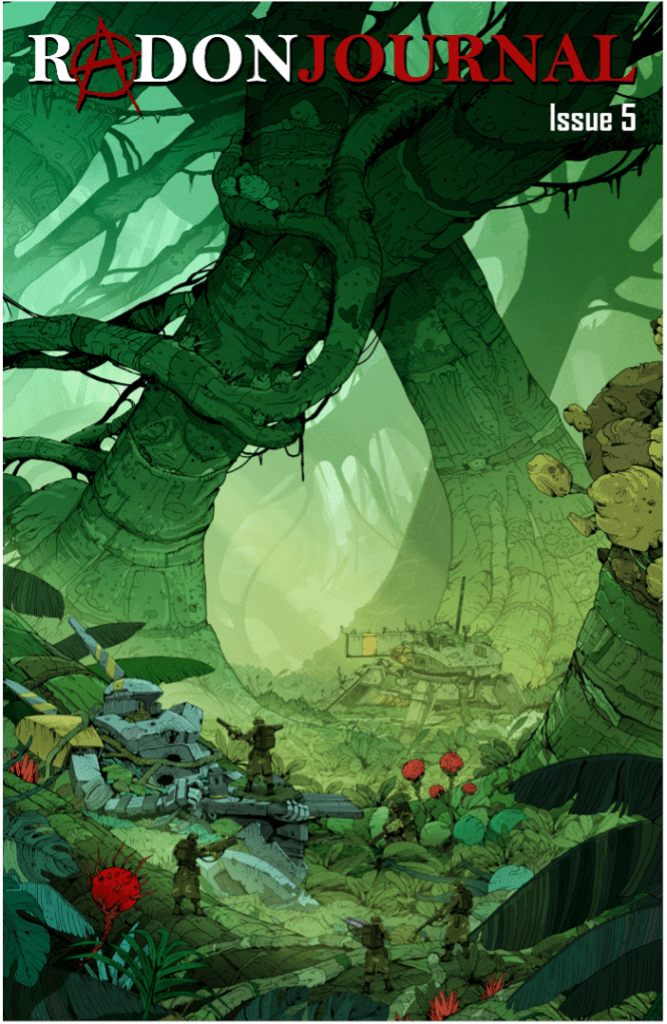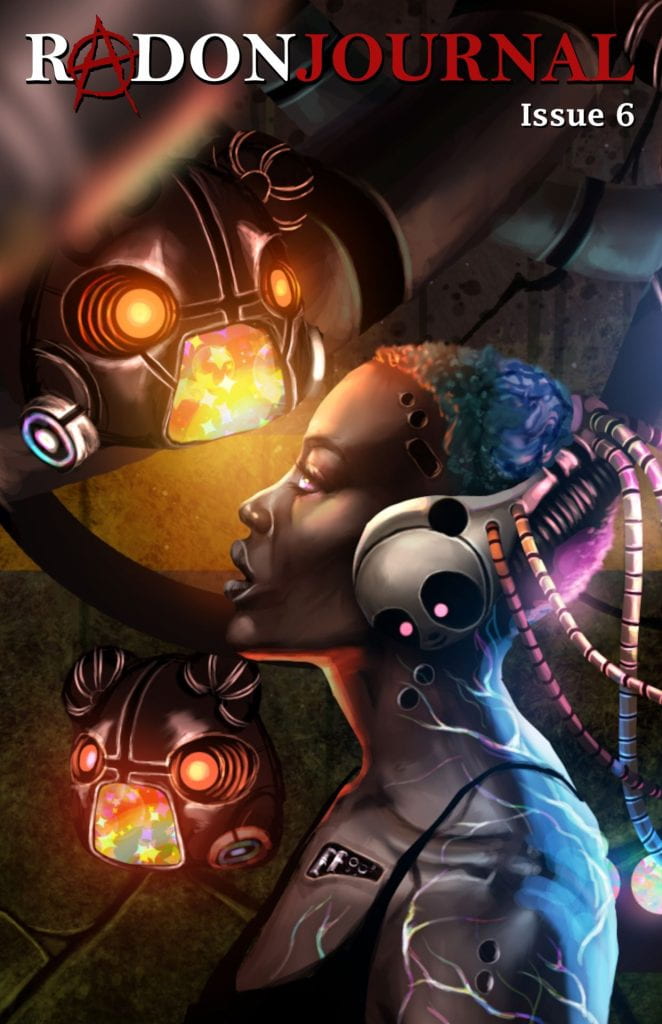Employers, GW Publishing faculty, CPS staff, and others invariably remark about the impressive and evident talents of GW Graduate Program in Publishing students.
Casey Aimer and Amber Avila-Aimer are exemplars of the creative talents, analytical acumen, and entrepreneurial expertise of our publishing students. In early 2021, Publishing director, John W. Warren, was in conversations with Amber, who was considering her application to the publishing program. A few weeks later, he spoke with Casey about applying to GW Publishing. As their applications indicated they both possessed MFA’s from Texas State University, in literature and creative writing, respectively, it seemed logical they were acquainted; a few weeks later, they revealed that they were in fact partners. Amber and Casey moved to the Washington, DC, area to take publishing graduate courses in person; secured jobs with local publishers; and were subsequently engaged and married during their two years of study—GW Publishing’s first married couple. Along the way, they launched Radon, a literary magazine, while working full-time and studying.
Let’s start from the beginning: You were the first couple to apply here simultaneously, and you got married while in the program! Congratulations! What are some of the reasons you decided to pursue the MPS in Publishing degree? Why did you choose GW specifically?
Amber: Like most college graduates, we had a hard time securing jobs during the pandemic. We graduated from our first master’s programs and moved into Casey’s childhood home in Central Texas thinking that we would be there for a couple of months until we secured a job. Well, two months turned into ten and we were still looking for our next opportunity. Frustrated with the job searching process, I began to investigate editing certificates to help me sharpen my editorial skills while we kept chugging out applications. It was during this search that I came across the MPS in Publishing Program here at GW. I was honestly a bit hesitant to begin another two-year program, but after a virtual meeting with John Warren, I knew that we both had to apply. John did an incredible job at making me feel supported as a prospective student and the descriptions for the courses made me feel like this program would be the perfect fit for us. We had also been gunning to leave Texas after graduation so the program being in DC was just icing on the cake.

You moved to Alexandria, VA, to study for your MPS in Publishing in person, and were able to secure jobs in the publishing industry before you even landed in DC. Why did you decide to move to DC? How were you able to find jobs before even starting the program? Was it difficult to manage work schedules while studying for your MPS degree?
Casey: That we were able to find quality jobs in scientific and university publishing before arriving in DC is a testament to this program’s prestigious influence. Both companies we ended up with have higher-ups from this program or teach in it as professors. Rather than being a program famous in name alone, the program is known for producing top publishing professionals, and anyone getting into or completing the program are known to be competent assets for any publishing firm.
The MPS degree was wonderfully considerate of our time as working adults, especially when compared to our previous full-time master’s degrees. Yes, we had to budget our time, especially when planning a wedding at the same time, but we never felt that the demands from our classes were more than we could handle on any given week. The professors here are focused on giving you the knowledge and experience one needs to function at a high level in the industry, and it is free of busy work.
Amber: Adding onto a bit of what Casey has already mentioned, we really must tip our hats off to John Warren and Nicole Mintz for helping us navigate the DC job hunt. Without Nicole’s coaching and program-specific knowledge and John’s infinite connections, I am sure we would have had a much harder time finding such great opportunities. For those of you who are planning on getting their first jobs in publishing, I highly encourage you to set appointments with them both!
“…the program is known for producing top publishing professionals, and anyone getting into or completing the program are known to be competent assets for any publishing firm.”
Casey Aimer
After only your first or second course in the program, you took an idea you developed in a course and launched your own literary journal, Radon, which recently published its sixth issue. It’s been impressive to watch your trajectory developing this journal and sustaining it into several issues. You pay authors! How did you develop this idea? Were you able to work through some course assignments in the publishing program related to your journal?

C: I’ll admit that the idea for a literary journal that combines science fiction, transhumanism, and anarchism was one I’d held in my head for years. It is everything I wished existed when I was a young writer looking for a home and finding nowhere that accepted my unique passions. Especially for sci-fi and radically political poetry that I was instructed to shy away from in all my formal BA and MFA writing education. Life is hard as a writer, and the world needed more semi-pro lit mag publishers advocating for their authors and helping them reach the next stage of their career. Though the kernel was in my mind since the 2010s, my courses here did allow me to flesh out the concept, run through the viability, and create everything from a mission statement to early webpage drafts. The encouragement to follow one’s niche passion in the publishing industry dug deep in my neurons and gave me the confidence to pursue the idea to reality.
What advice would you give to new or prospective students to the MPS in Publishing program?
C: Try to come live in Alexandria if possible and attend in-person classes. The additional camaraderie you receive from your fellow students and professors is exceptional. There are plenty of scholarly and scientific publishing jobs in DC, too!
What course or professor made the biggest impact on you during your time at GW?
A & C: The most impactful courses are often the ones that are the most unassuming. The professors here have a knack for making any topic relevant, exciting, and integral to your work life. Whether it’s copyright law or management, you won’t know what to do without the skills once you’re done.
“I’m incredibly lucky I was able to harness learned skills from the program and apply them to my job at the same time.”
Amber Avila-Aimer
How are you using what you learned in your publishing courses in your day-to-day work as Editorial Coordinator, AAAS (Casey); and previously at the American Psychological Association, and now as Managing Editor at Wiley (Amber)?
C: Every publishing course gave us a little more of the puzzle that is the publishing industry. The production classes set you up to help in the production arm of wherever you work, the marketing courses provide insight into the labor that is getting society to notice your authors, and editorial courses will sew-up any areas you lack in your developmental/copy/line editing skills. So, the cop-out answer is that everything we learn is relevant to our day-to-day work at publishers and will serve us well into whichever role we choose next.
A: By the time I had moved into APA full-time, I had a foundational knowledge of the scholarly book publishing industry through the accumulation of my courses in the program. This made it a lot easier to “jump right in” at APA, so to speak.
All the courses in the editorial block of the program’s offerings (Mastering Book Acquisitions, The Professional Editor, and Editing Special Projects to name a few) gave me the guiding principles and technical know-how for my role at APA. I have spearheaded projects that include peer-review outreach, comparative and competitive research, inputting data into title management systems, eBook management, and book scheduling. Most recently, I provided a developmental review of an APA title set to be published next year and received exceptionally positive feedback from both developmental editors on the project.
I’m incredibly lucky I was able to harness learned skills from the program and apply them to my job at the same time. It’s an amazing feeling to come into a job and confidently say “I’m actually quite familiar with that [insert publishing thing here].”

You have both worked with Nicole Mintz, CPS Career Services Director, and participated in events such as our Publishing CareerBuilder webinars. How did you benefit from some of the career services at GW’s College of Professional Studies and the Publishing program specifically?
C: This program’s focus on industry placement is refreshing, and helpful each step of the way. It highlights how this program truly is for professional studies and those wanting to be at the top of their game in their chosen industry. The CareerBuilders spanned a wide gambit of topics, with something for everyone no matter which niche in the industry you want to pursue.
I’d also like to highlight the yearly GWU Publishing Ethics Conference. Each October it grows and all walks of professionals across the US attend. I highly recommend everyone who can attend in person to meet fascinating and important industry professionals.
